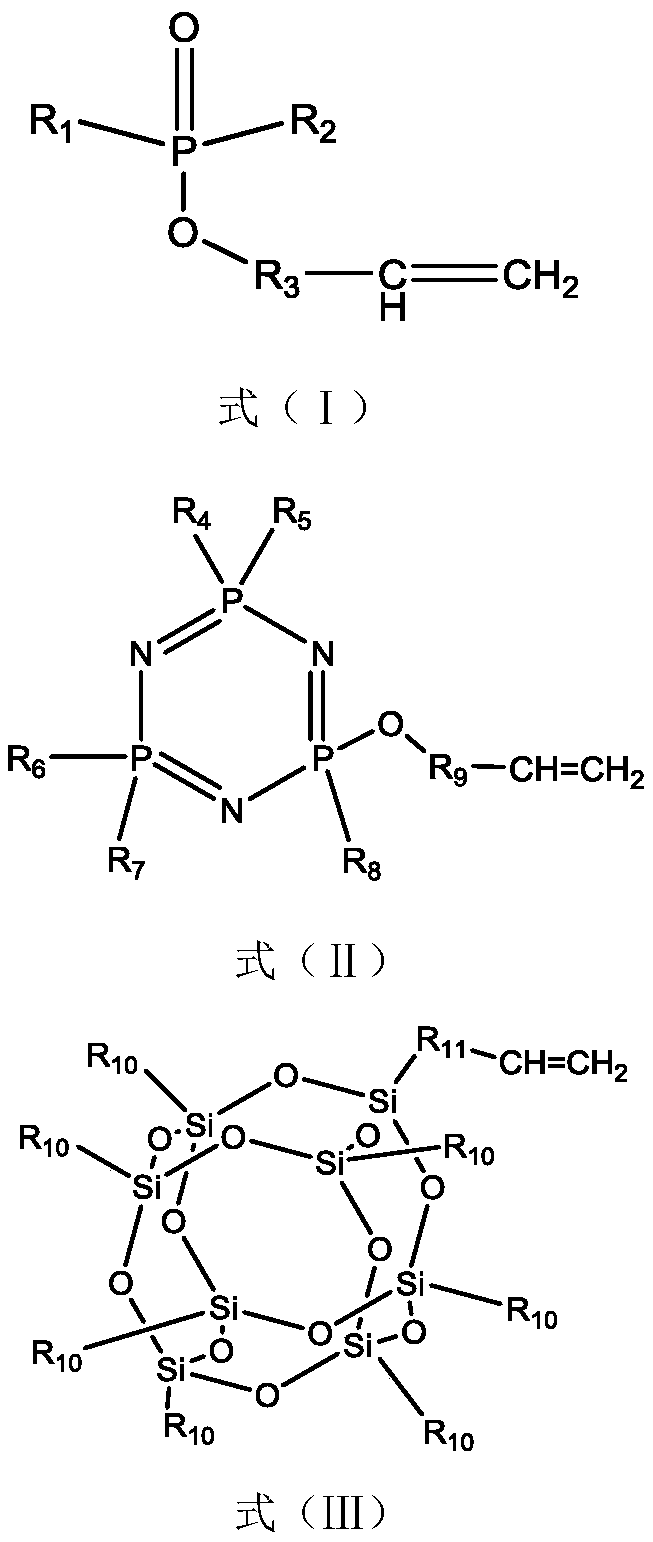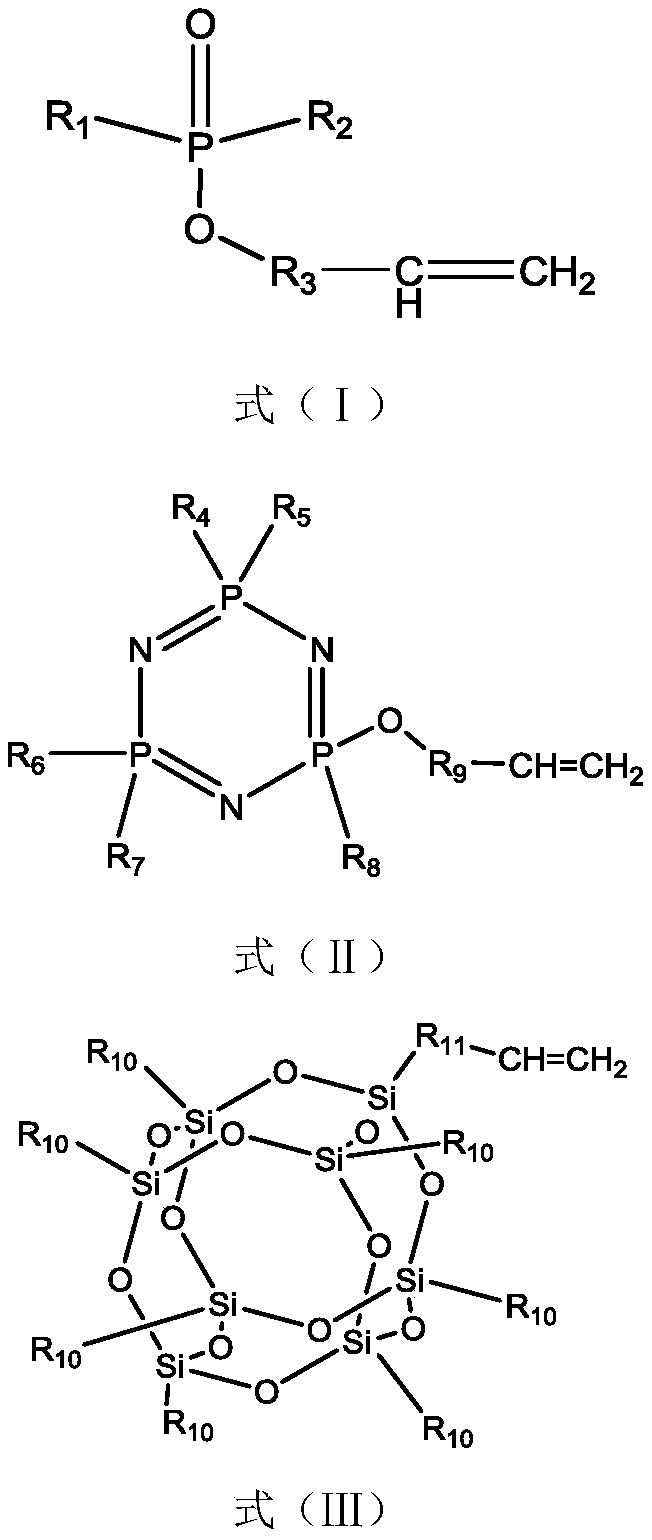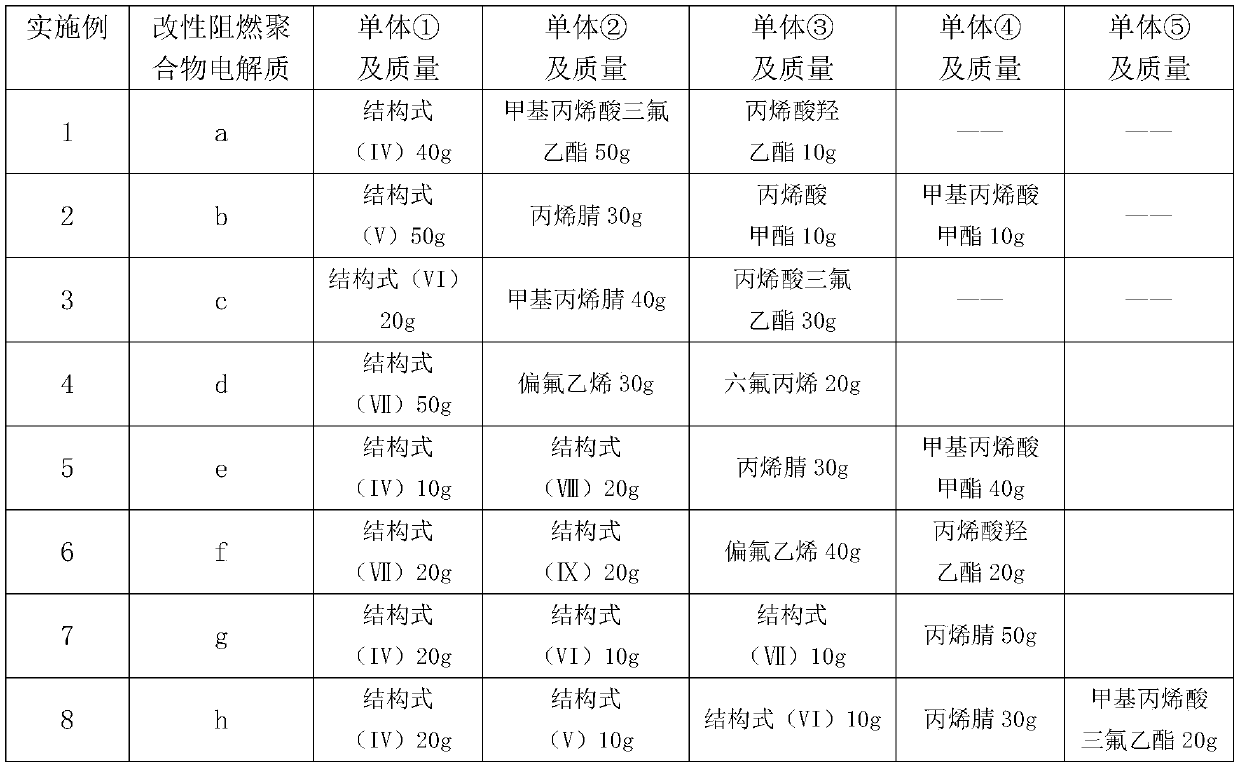Anode additive for lithium batteries and preparation method of anode additive
A lithium battery and additive technology, applied in battery electrodes, secondary batteries, circuits, etc., can solve problems such as affecting cycle life and reducing energy density, and achieve the effects of good stability, reduced contact, and reduced side reactions
- Summary
- Abstract
- Description
- Claims
- Application Information
AI Technical Summary
Problems solved by technology
Method used
Image
Examples
Embodiment 1-8
[0035] According to the quality shown in Table 1, mix the reactive flame retardant monomer, polymer electrolyte monomer, a certain amount of surfactant, molecular weight regulator, chelating agent, pH regulator, and deionized water for a certain period of time until a stable emulsion is formed , heat up and react for a certain period of time, centrifuge the emulsion and dry it in vacuum to obtain modified flame-retardant polymer electrolytes a-h. Among them, the structural formulas (IV)-(Ⅷ) are shown in Table 2, and the monomers ①-⑤ are all reactive flame-retardant monomers or electrolyte monomers.
[0036]
[0037] Table 2 Structural formula (IV)-(Ⅷ)
[0038]
[0039] Mix the obtained flame-retardant polymer electrolyte a-h, positive active material, conductive agent, and binder according to the mass ratio in Table 3 to obtain a positive electrode slurry, and apply, roll, and die-cut according to the standard lithium-ion battery positive plate preparation method , to g...
PUM
 Login to View More
Login to View More Abstract
Description
Claims
Application Information
 Login to View More
Login to View More - R&D Engineer
- R&D Manager
- IP Professional
- Industry Leading Data Capabilities
- Powerful AI technology
- Patent DNA Extraction
Browse by: Latest US Patents, China's latest patents, Technical Efficacy Thesaurus, Application Domain, Technology Topic, Popular Technical Reports.
© 2024 PatSnap. All rights reserved.Legal|Privacy policy|Modern Slavery Act Transparency Statement|Sitemap|About US| Contact US: help@patsnap.com










